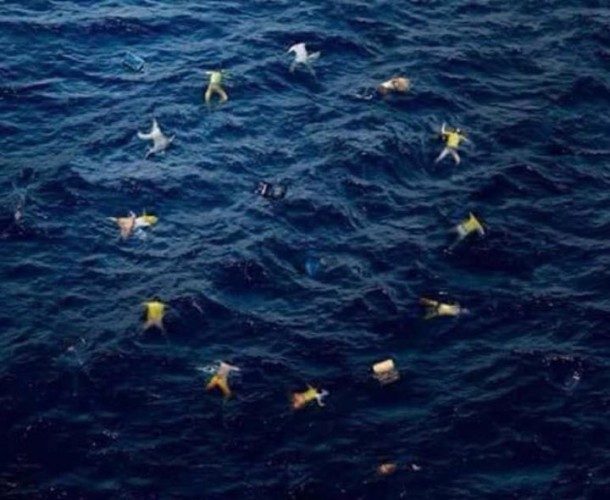What has remained of the European Union project? The objective was to make the EU an example of democracy and human rights respect based on values such as peace and solidarity. How has it gone so far?
Well, at the moment there is no actual war within the EU. However at least 6,400 people have died in eastern Ukraine since the conflict began in April 2014. And there is no doubt that the EU as a key actor in the promotion of peace worldwide has failed in its own neighbourhood.
What about human rights then? Milestone conventions have been drafted and are now safeguarding the respect of european citizens’ rights but the EU credibility as a human rights defender, is almost completely swept away every time a human being drowns in the Mediterranean.
The institutions of the European Union represent European citizens. Yes, but only the European Parliament actually does, whose elections had a turnout of 42,61%. The motto ‘united in diversity’ still means different things to different people. If on one hand the national identities’ standardisation is not felt as a common threat anymore, on the other the lack of unity and solidarity within the community is what crumbles the EU’s foundations.
The Greek debt crisis has been a great challenge for the EU. The outcome of the decision about prioritising the European community’s values or the economic balance of sheet would have shown what the EU had became.
But what it is clear is that, in terms of policy making, we are divided as never before. Migration is the dramatic example of that.
Men, women, children are dying on their way to reach a place where they could be safe from war and misery. The EU, whose members are among the richest countries in the world, seems to be unable to find funding to give a proper response to the crisis, or are just unwilling to do so.
But if Hungary builds a 13-foot fence on its border with Serbia to prevent migrants entering, Germany’s last week announcement to suspend the EU’s Dublin Regulation for Syrian refugees contrarily represents a courageous example of how the EU can do better.
However, the positive action of a few States such as the efforts made particularly by Italy and Greece are not enough. Coordination and cooperation among all the Member States are the keys-factors to handle the migrants’ influx. An emergency reunion of European Union interior ministers has been scheduled for September 14 to finally formulate a collective concrete response.
More solidarity, an overhaul of its laws governing migration and asylum, less populist and votes-oriented political statements, and a better common foreign policy should be part of the EU’s strategy to face the migration tragedy.
Political courage is needed in the EU institutions along with a re-engagement in its core values and a closer approach to its citizens. The EU has to represent what it was created for. The European project was noble. Responsive policies and tangible actions need to happen soon to show that that project is not just a facade.

